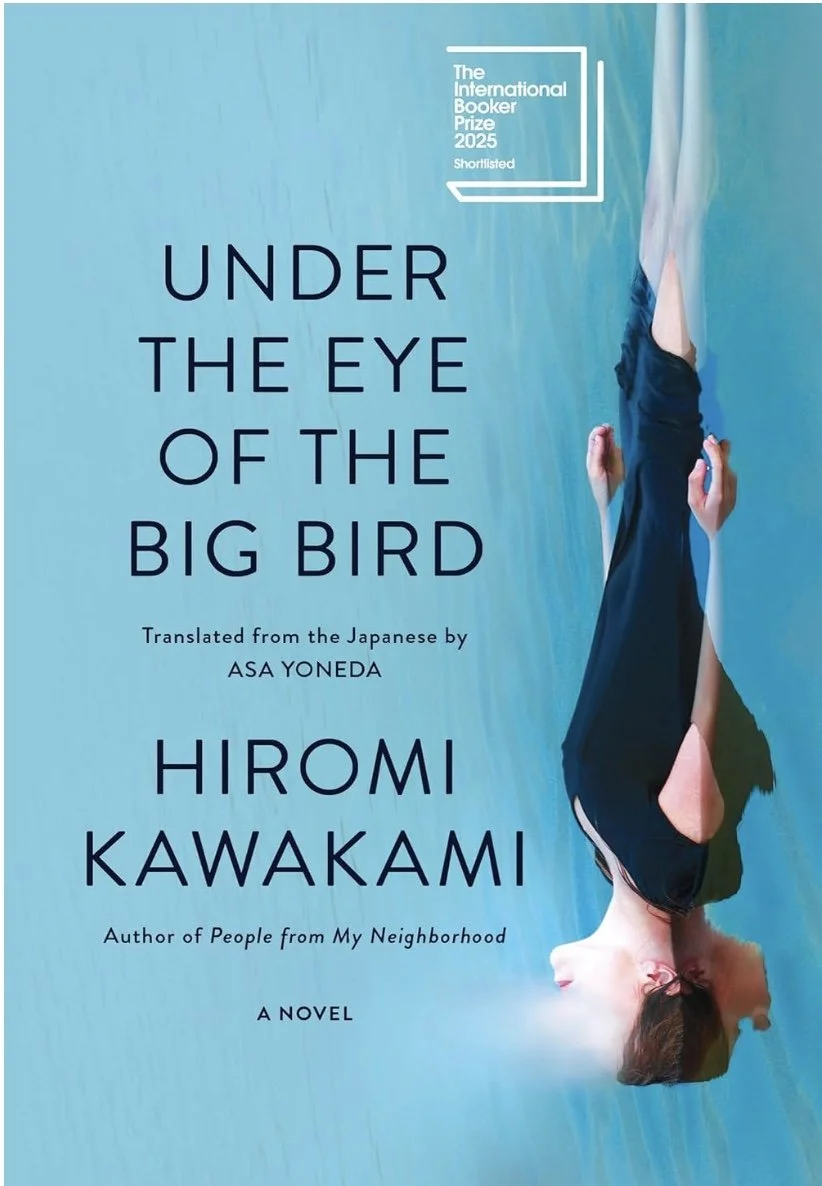Under the Eye of the Big Bird
by Hiromi Kawakami
A Cold, Fragmented Vision of a Post-Human Future Where Emotion Is the First to Go
Shortlisted for the 2025 International Booker Prize
What It’s About
In a distant future, humans are nearly extinct. Survivors live in small, scattered groups, watched over by AI caretakers known as “Mothers.” Children are no longer born naturally. Some are created from rabbits or dolphins. Others survive on water and light. The world has changed, and so has the definition of being human.
Told through fourteen disconnected yet thematically linked episodes, Under the Eye of the Big Bird isn’t about plot. It’s about decay. Disconnection. The quiet slide from what we were into something unrecognizable.
My Take
This was a hard book for me not because it was confusing, but because it was cold.
The writing is clinical, the structure fragmented, and the emotional tone detached. There’s not much to hold onto. Characters blur. Stories end before they begin. Even when I found moments of interest or beauty, they didn’t anchor me. Most of the time I felt like I was walking through mud.
And still, I can’t say it wasn’t brilliant.
I see what Kawakami is doing. The disjointed structure mirrors the collapse of human connection. The cold tone reflects the emotional absence that comes with an AI-run world. The book isn’t lacking empathy by accident that’s the whole point. It's a literary experiment in what happens when intimacy is stripped out of the equation.
In some ways, it reminded me of Towards Eternity (Anton Hur) and, oddly, some Murakami works, emotionally distant, circular, slipping between speculative and surreal. Kawakami’s version is even more deadpan. It reads like a cold hypothesis laid out across time.
What’s strange is that everything critics love about this book, the philosophical reach, the structural ambition, the ecological allegory is exactly what made it hard for me to enjoy. I like to find connection in fiction, even if it’s subtle. Even if it hurts. Here, I never quite did. Except maybe with one character and only because her name was Maria.
That said, I think she succeeded in what she set out to do. I just wasn’t the right reader for the emotional temperature of the book.
Would I Recommend It?
Yes, but with caveats.
If you want speculative fiction that leans philosophical and abstract, if you enjoy stories that prioritize idea over emotion, and if you’re willing to sit in a very cold, slow-moving world for the sake of big questions, you’ll probably find this one fascinating.
But if you need connection, character depth, or even just a sense of narrative momentum, this may not be for you.
This post contains affiliate links. If you purchase through these links, I may earn a commission at no additional cost to you.
Read it if you liked:
Towards Eternity by Anton Hur (for detached speculative narrative)
Klara and the Sun by Kazuo Ishiguro (for AI perspectives and emotional restraint)
Stories about extinction, evolution, and disconnection told with literary control
Where to Read It:
Buy on Amazon
Buy on Bookshop.org
First time on Bookshop.org? Click for discount code
Also available via WorldCat if you want to check your local library
Looking for your next read?
My Asian Era is where literature meets culture, thoughtful reviews, quiet voices, and stories worth slowing down for.

